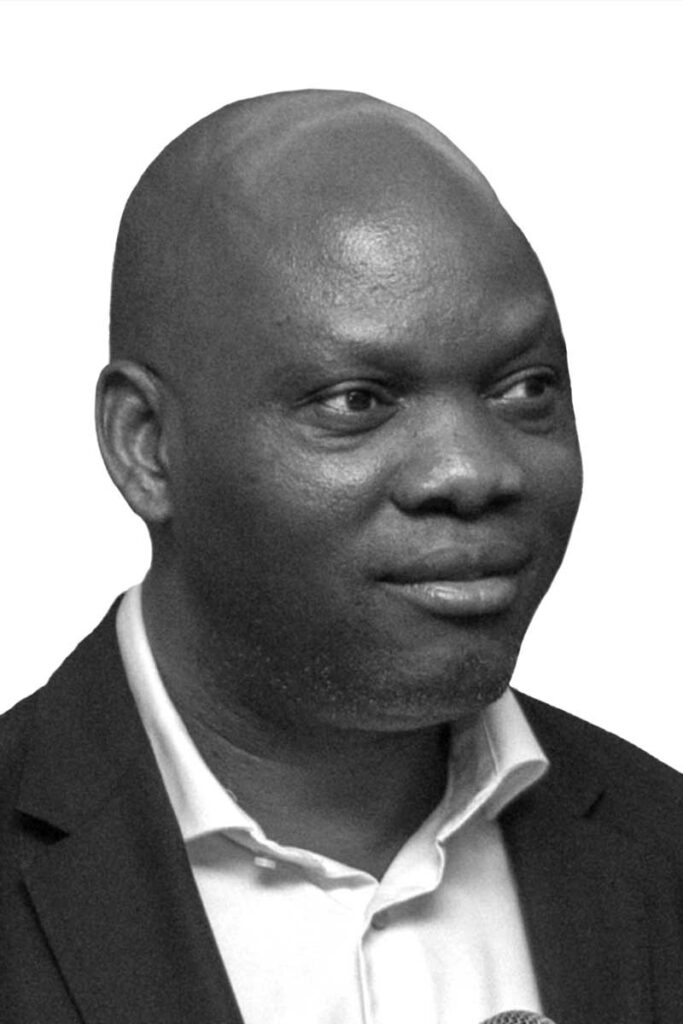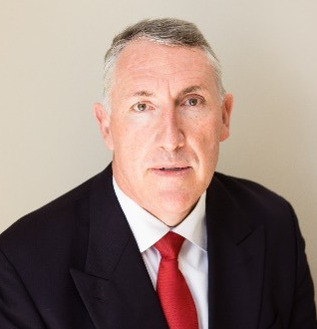Good Governance Africa head Chris Maroleng
This Mail & Guardian webinar was sponsored by Good Governance Africa (GGA) and the Centre for Democracy and Development (CDD). It featured as its speakers: Professor Adriano Nuvunga, Executive Director, CDD; Professor Erin McCandless, Associate Professor of Peace and Security, Wits University; Professor Abel Esterhuyse, Head of Department of Strategic Studies, Faculty of Military Science, Stellenbosch University; and Professor Thomas Mandrup from the Security Institute of Governance and Leadership in Africa (SIGLA), also at Stellenbosch University. It was moderated by Chris Maroleng, Global Advisor and the SADC Executive Director of GGA.
Chris Maroleng introduced the speakers, outlined what GGA does, and summarised what the webinar discussion would be about. Over the past few weeks, security forces from the SADC and Rwanda have been deployed in Northern Mozambique to counter terrorism and violent extremism in Cabo Delgado. They helped the government to retake the strategically important town of Mocimboa da Praia, which had been under insurgent control since August 2020. Both the US and EU have also undertaken to provide training for Mozambican troops. This takes place as the US withdraws from Afghanistan, and perhaps some lessons can be learned from that conflict, relevant to the current conflict in Mozambique.
 Professor Adriano Nuvunga
Professor Adriano NuvungaProfessor Adriano Nuvunga: My organisation, the Centre for Democracy and Development, is a civil rights organisation in Mozambique. We are increasingly concerned with the growing militarisation in Cabo Delgado. It is not clear under which mandate the Rwandan troops are operating, unlike the SADC troops. Our concern is the security of non-combatants, the women and children in the area, many of whom are being held hostage by the extremists. There are also concerns about the accountability of the deployed troops, as things have often spiralled out of control in similar African conflict zones.
Professor Abel Esterhuyse: Cabo Delgado was until recently largely ungoverned, a sort of “Wild West” used for smuggling until the discovery of gas, which resulted in many international and local players converging. Multiple intervening military forces have now been added to the mix. It is a very large area, so the troops deployed there are a mere drop in the ocean. Any counterinsurgency operation will have to bring the maritime border into consideration, and the remoteness of the towns. Can a co-ordinated operation actually take place?
For the insurgents, it’s a question of sending out a core message that resonates with the local population. Any insurgency requires a bureaucratic and institutional centre, located in a safe haven — preferably cross-border — to build insurgent capacity. Most insurgencies also rely on some form of international logistical support, and support from the locals is also essential.
 Professor Erin McCandless
Professor Erin McCandlessJames Kiras, a Professor of Comparative Military Studies, has a three-phased approach to eliminating insurgents: identify, isolate and eradicate them. So now the military is already in place, but has a process of identification and isolating taken place? Counterinsurgency cannot take place without good governance; a small token military force will not succeed in winning this conflict. How can we co-ordinate these external forces, and do they have different interests? We saw how a similar force failed in Afghanistan. What is of importance is what endstate the military is looking for; when will they feel they have achieved their objective?
Professor Erin McCandless: I want to talk about the peace-building process. Insurgencies usually take place in a context where the government has not been attending to the needs of communities, so then youngsters in particular can easily be mobilised, as they believe they don’t have a future. There is widespread consensus that we cannot solve extremism with military force alone. The US spent two trillion dollars on the military campaign in Afghanistan; what if this had been spent on development instead? A holistic engagement is required, but this requires political will.
Mozambique has had a steadily rising fragility score: the populace believe they cannot trust the government there. In 2006 Mozambique was rated 80th and today it is 22nd on the fragility score chart. Economic grievances gave rise to extremism in Cabo Delgado, because there has been very little development there. The political economy must be analysed and the root causes of the conflict must be addressed. Sustainable peace requires consensus, and this requires talking to the young people, who constitute 75% of Africa’s population. A social contract must be built; natural resources must be better managed, with community benefit at the top of the list. All of this must take place in an inclusive manner. There are now resources flowing in from the outside, but there are concerns about the transparency on the part of those managing them.
 Professor Thomas Mandrup
Professor Thomas MandrupProfessor Thomas Mandrup: It is sad to see what has been happening in Cabo Delgado, but there has been some advances made recently, which have forced the insurgents back. The insurgents are no match for conventional military forces, but one of the biggest problems was that the Mozambican army was not well organised. The question now is, where are the insurgents going — to Tanzania?
The military can create space for negotiation, but only if the root causes are dealt with. The Mozambican government has been unwilling to do this so far. There are government officials in the area, but they are often corrupt, which adds to the problem. You cannot win a “Coin” (counterinsurgency) operation without buy-in from the local population, and there have been many past conflicts that showed this, but there has been reluctance from the Mozambican government to integrate the people of Cabo Delgado, who have always been marginalised. The conflict has also become one between communities in the area, with vigilante groups becoming involved, which is an expression of a weak state and is a very dangerous path to go down.
There is widespread corruption and debt in Mozambique, and how are they going to get out of this debt? Total may not want to come back in and start exploiting the gas resources in Cabo Delgado. The conflict in Afghanistan showed that the local population was unwilling to accept Western-style democracy, so, what kind of project should be set up in Mozambique? It must be a realistic one, and it should not be rushed.
 Professor Abel Esterhuyse
Professor Abel EsterhuyseEsterhuyse: I am worried about the Coin operation: what is the military supposed to do? We have deployed them, but how are we going to employ them in an effective manner?
Maroleng: Have any of their objectives been communicated to you?
Esterhuyse: We cannot do development without security, but an overly aggressive approach by the military won’t help. Military forces always serve a particular interest: what interest do the Rwandan forces serve? That of France?
What do you think, Professor Nuvunga?
Nuvunga: There has been a lot of speculation about French and US involvement in the area. So far the Rwandan forces have been quite successful in pushing back the extremists, but it is too soon to claim victory. Some believe they are there only to protect the gas resources. Are the resources in Cabo Delgado something precious for the people there, or a curse, even before production of natural gas has started?
McCandless: Yes I have also heard that the Rwandan forces are there to protect Total’s interests, which does not augur well for a lasting political solution in Cabo Delgado. What is the responsibility of the international community?
There is also the issue of cost; can Mozambique afford a lengthy SAMIM (SADC Mission in Mozambique) operation?
Esterhuyse: It’s a difficult question to answer; more forces are needed to stabilise the situation, but co-ordination is essential between the Rwandan and SADC forces. There is no clear idea for what the military is supposed to do there; we all know that a political, economic and development solution is required in the long term.
Could this be Southern Africa’s first intractable conflict?
Esterhuyse: This is tied to the question of, what kind of insurgency is this in Northern Mozambique? Is this an organised violence crime problem, or insurgency?
McCandless: I think the situation there is because of grievances that have not been addressed. Given the high levels of fragility there, how can Mozambicans ensure that their resources, particularly gas, are properly managed? Only by building capacity within the government.
How can we ensure greater accountability on the part of governments, which effectively prey on their own populations?
Nuvunga: The governance in Mozambique has failed us with regards to resource extraction; it is bent on non-inclusive growth and development. This is underpinned by political exclusion and partisanship. Instead of building the state, Frelimo built the party instead. It has not transitioned to a democratic model; the national interest was privatised by one group. Northern Mozambique is an opposition area, and because of the politics of exclusion, it has not been developed. There is no service; the state is not there, so that’s where violence erupted. The government has failed the country, and the insurgency is an expression of this.
At the centre of the $2-billion “hidden debt” scandal was the Mozambican intelligence service, which became a corrupt entity, a weapon of corruption. This shows how governance has failed; elites have partnered with foreign interests, and development has been denied to millions. Frelimo is now in court, and now millions of Mozambicans are without jobs. The political will is missing.
Can I have your final observations, please?
McCandless: Mozambique is very elite driven; the military intervention needs to be tied to a much more inclusive political settlement, tied to transitional mechanisms and institutions. The core issues that caused the conflict must be addressed. Social cohesion is essential for transforming the lack of trust, and this comes from good governance and inclusion. The people want peace, even if the government doesn’t; they want equitable distribution of resources, and delivery of services.
Esterhuyse: Positive peace entails creating a lasting political solution, and that involves inclusion.
Nuvunga: This series of regional seminars is very important. The risk of regional spillover is real. The insurgents in Cabo Delgado may seek other havens. Good governance is required, and this must include local people. There must be transparency, regarding the military intervention; the military must be held accountable.
Extraction of minerals in Mozambique has always been Maputo-centred, not shared with the provinces, and this must change. The international community must participate in development, create jobs for local people and build resilience. The companies involved in extraction must take responsibility for developing local communities. This is the only way to reverse the insurgency.
Maroleng closed proceedings.